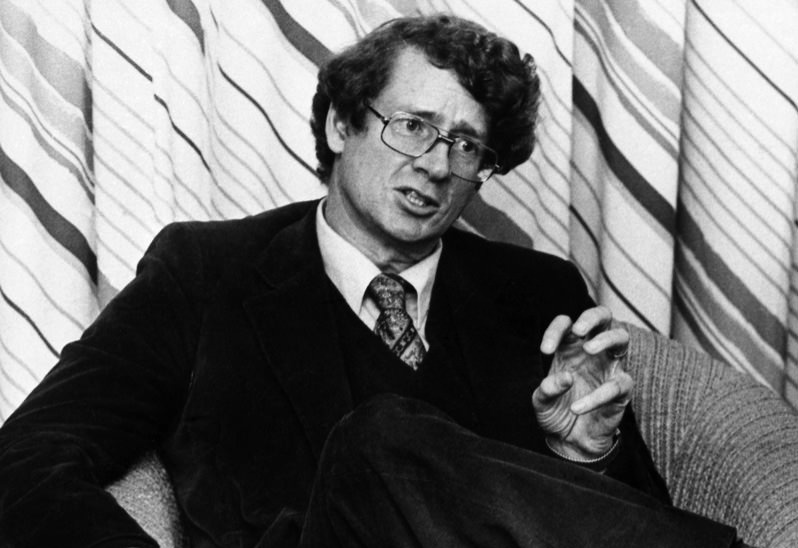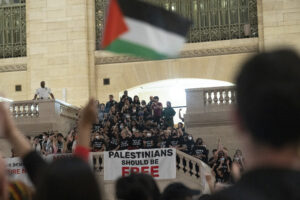Truthdigger of the Week: South African Writer André Brink
With Brink's passing, South Africa has lost one of its most powerful literary and political voices. The first Afrikaans writer to have produced a book banned by the apartheid government, Brink wrote courageous stories that explored the harshest aspects of South African society. AP
AP
AP
Every week the Truthdig editorial staff selects a Truthdigger of the Week, a group or person worthy of recognition for speaking truth to power, breaking the story or blowing the whistle. It is not a lifetime achievement award. Rather, we’re looking for newsmakers whose actions in a given week are worth celebrating.
With the passing of André Brink on Feb. 6 at the age of 79, South Africa has lost one of its most powerful literary and political voices. The first Afrikaans writer to have produced a book banned by the apartheid government, Brink wrote courageous stories that explored the harshest aspects of South African society. His diverse literary oeuvre, defined by what he called a “love-hate relationship with the Afrikaner,” roused a generation of writers in his homeland to embrace a reconceptualization of history, race and gender.
Brink [in an undated photo above] came of age alongside the establishment of apartheid. He was born in 1935 in Vrede, a staunchly conservative rural town in South Africa’s former Orange Free State. He studied English and Afrikaans at the university in Potchefstroom (still notorious for its extreme-right allegiances) and became involved with the Afrikaner Broederbond, a secret, Nazi-like society that was at the heart of Nationalist Party politics.
But the direction of his life changed when he visited Paris for the first time in 1960 — the year that brought the prohibition of the African National Congress as well as the Sharpeville massacre, in which South African police opened fire on a crowd of black protesters. While in France, he underwent a dramatic awakening, rejecting the puritanical and racist values of his upbringing. He later wrote, “I was born on a bench in the Luxembourg Gardens in Paris, in the early spring of 1960.” Stephen Johnson, a former CEO of Random House and Penguin Books and a member of Brink’s literary trust, said that in Paris “Brink had firsthand exposure to the existentialists and an artistic ferment that helped him establish what was, in truth, an entirely new direction in Afrikaans fiction. When he came back to South Africa, he turned Afrikaans writing on its head. He experimented with form, wrote about sex, changed the literature forever.”
He became the most well-known face of a group of politically and culturally radical Afrikaans writers known as Die Sestigers, roughly translated as “the 1960s generation.” In his 1970 article “The Position of the Afrikaans Writer,” Brink wrote, “No Afrikaans writer has yet tried to offer a serious political challenge to the system. … We have no one with enough guts, it seems, to say ‘No.’ ” But it was his 1973 novel “Kennis van die Aand,” later translated into English as “Looking on Darkness,” that would mark him as a verraaier, or traitor to the South African establishment, because of its candid portrayals of torture under apartheid and sex across racial lines.
A literary enemy of the state, Brink “was continually watched by the security police,” and was subject to having “his phone tapped, and his mail intercepted and occasionally stolen,” according to the South African Press Association.
After his most successful work, “A Dry White Season,” was adapted into a 1989 film starring Marlon Brando, South African censors declared it “harmful to race relations and prejudicial to the safety of the state, the general welfare and to peace and good order.” The film, in which a white schoolteacher investigates the death of a black activist in police custody, has the distinction of being the first major Hollywood feature directed by a black woman, Euzhan Palcy.
By his own definition, Brink was a “cultural schizophrene,” characterized not only by his political subversion but also by his style of writing simultaneously in Afrikaans and English, a habit that he developed partly to elude censorship. As prolific as he was outspoken, he produced more than 60 books and received almost as many awards. Days before his death, while collecting an honorary doctorate from Belgium’s Catholic University of Louvain, he remarked upon his motivations as a writer with a statement that expressed the essence of his career: “This is what matters: to say ‘no’ in the face of the certitudes of power.”
For a life devoted to challenging the certitudes of power in his native South Africa, André Brink is our Truthdigger of the Week.
Your support matters…Independent journalism is under threat and overshadowed by heavily funded mainstream media.
You can help level the playing field. Become a member.
Your tax-deductible contribution keeps us digging beneath the headlines to give you thought-provoking, investigative reporting and analysis that unearths what's really happening- without compromise.
Give today to support our courageous, independent journalists.






You need to be a supporter to comment.
There are currently no responses to this article.
Be the first to respond.